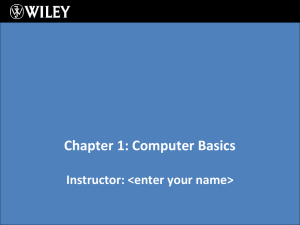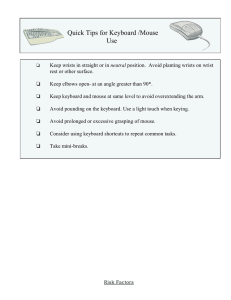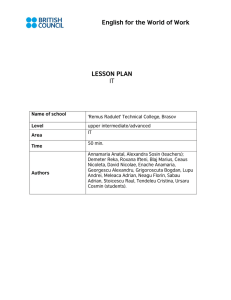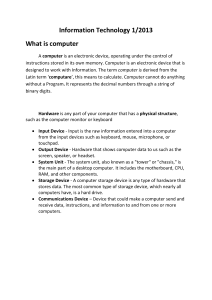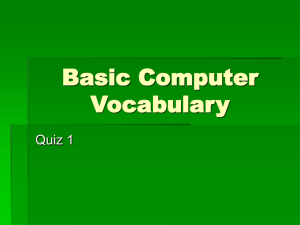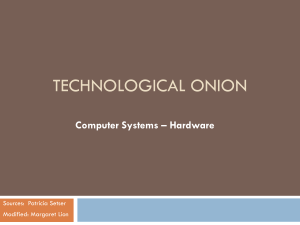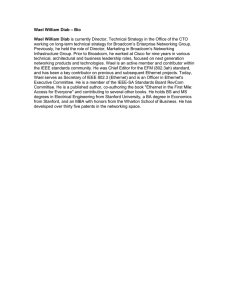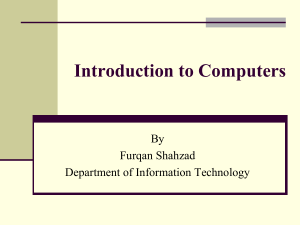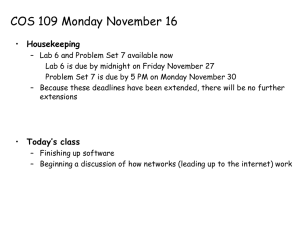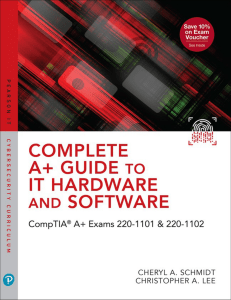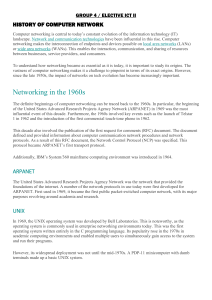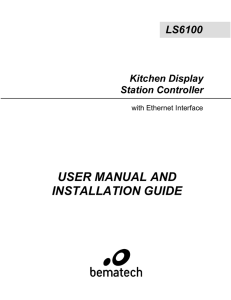Update _Chapter_1
advertisement
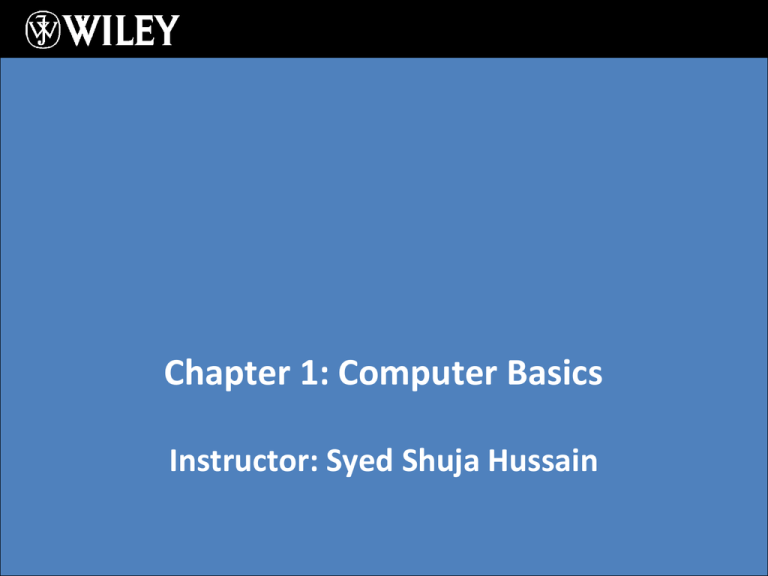
Chapter 1: Computer Basics Instructor: Syed Shuja Hussain Understanding Information Systems Information system: An interconnected environment for managing and processing data using a computer Parts of an information system: People Hardware Software Procedures Data Computer Types Personal Computers Desktop PC • System unit, separate monitor, keyboard, mouse Notebook PC • Fold-up design, built-in keyboard and screen Tablet PC • Slate design, touch screen, no separate keyboard, mouse, or monitor Smartphone • Hand-held, phone and computer, touch screen Computer Types Multi-User Computers Server • • • • Serves and supports a network Provides centrally accessible storage space Shares printers Does not directly provide processing power to clients Mainframe • Collects large amounts of business data • Provides processing support to terminals Supercomputer • Largest computer available • Universities, research, government Software Types Basic Input Output System (BIOS) Read-only chip on motherboard Startup instructions for computer Operating System (OS) User interface Runs application File storage Communication with hardware Utilities Error correction, optimization, protection Application Software Productivity tools, graphics, games, multimedia Information Processing Cycle How Data is Represented Common Quantities of Bytes Term Number of Bytes Kilobyte (KB) 1024 (approximately one thousand Megabyte (MB) (approximately one million) Gigabyte (GB) (approximately one billion) Terabyte (TB) (approximately one trillion) Petabyte (PB) (approximately one quadrillion) Information Processing Input Keyboard, pointing devices, digital cameras, scanners, bar code readers Processing Motherboard, CPU, memory, buses, chipset Output Monitor, printer Storage Hard drive, USB flash drive, CD, DVD Ethernet Networking Ethernet networking Wired Ethernet Wi-Fi (802.11) Hardware Network interface card (NIC), a.k.a. network adapter Switch Router Cable (copper, fiber optic) Types of Networks Client/server Peer to Peer Other Ways Computers Communicate Bluetooth Short-range personal networking Device connectivity Internet Dial-up Broadband Internet service provider TCP/IP
